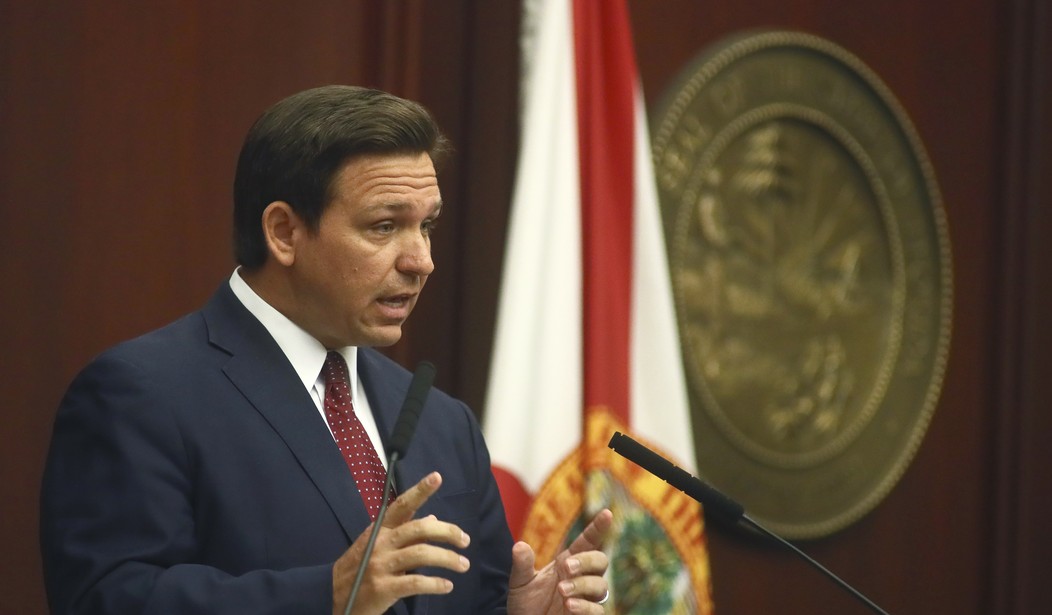Republican state lawmakers in Florida have taken a step towards standing up against Big Tech’s effort to diminish non-leftist views on its platforms. A Florida House panel a measure seeking to place consequences on Big Tech companies if and when they violate residents’ privacy rights or attempt to stop citizens from accessing candidates during an election cycle.
The Epoch Times reported:
The first of a series of bills backed by the Republican governor was cleared by the House Appropriations Committee on Monday in a 19-8 vote, mostly along partisan lines. Under the new measure from the Florida Legislature, technology companies that deplatform a candidate during an election will face a daily fine of $100,000 until the candidate’s access to the platform is restored.
If a technology company promotes a candidate for office against another, the value of that free promotion must be recorded as a political campaign contribution enforced by the Florida Elections Commission.
The bill will also empower the Florida attorney general to bring action against Big Tech companies under Florida’s Unfair and Deceptive Trade Practices Act if they violate the new policies laid out in the bill.
The bill would also require tech companies to “give users advance notice of a rule change and before shutting down an account and apply the rule consistently.”
Under the proposed legislation, companies “using their content and user-related algorithms to suppress or prioritize the access of any content related to a political candidate or cause on the ballot would also face daily fines under the measure,” according to the Epoch Times.
State Republican lawmakers filed the bill only days after Twitter shut down former President Donald Trump’s account ostensibly due to concerns over incitements to violence. GOP Rep. Blaise Ingoglia, who sponsored the bill, argued that it is necessary to shield Florida’s residents from being silenced by Big Tech companies.
“We’ve gotten to the point now that they’ve become so powerful,” Ingoglia said. “When you have a handful of companies that are so powerful they can dictate what can or cannot be seen or heard in order to make informed choices I think that that is problematic.”
Opponents of the bill argue that the proposal is unconstitutional because it infringes on the companies’ right to free speech by regulating the content allowed to be published on their platforms.
“I share some of your concerns about these Big Tech companies, and I do think we need to do something about them,” said Democratic state Rep. Joe Geller.
“Sometimes I’ve argued on some of our bills that we’re talking about ‘something that ain’t broke, so don’t fix it.’ That’s not the case here. This is broke,” he continued. “I just don’t think it’s within our purview to fix it.”
Florida Gov. Ron DeSantis, who supports the bill, lashed out at Big Tech during the announcement of the measure. “Floridians should have the privacy of their data and personal information protected, their ability to access and participate in online platforms protected, and their ability to participate in elections free from interference from Big Tech protected,” he said.
However, it may be a while before the proposal is passed. It must go through another House panel hearing before going to the floor for a vote. The bill has not yet gone to the Senate.
Regardless of whether or not it passes, the measure is sure to spark a vigorous debate. As Big Tech companies continue using their gigantic platforms to determine elections and shape American thought, this issue will become far more prominent. The actions of the Florida GOP will likely be only the first in a series of efforts to push back against the influence of social media companies like Twitter, Facebook, YouTube, and others.
If the Sunshine State manages to pass the legislation and keep it in place, it could very easily have a domino effect, especially for red states who might pass similar measures. If each right-leaning state instituted these laws, it could very well force Big Tech companies to abandon their politically-biased censorship practices, which certainly won’t make the far-left happy. But either way, it is apparent that the battle over online expression is about to kick into full steam.












Join the conversation as a VIP Member